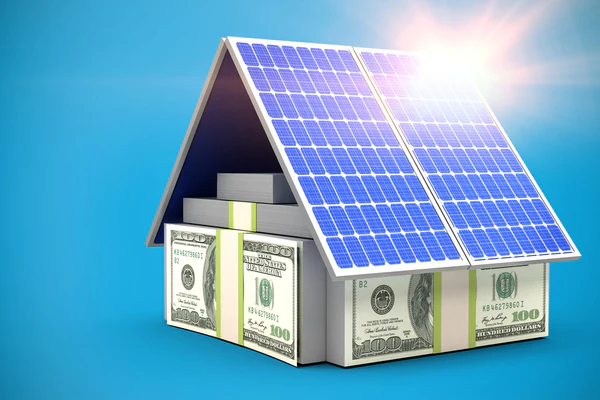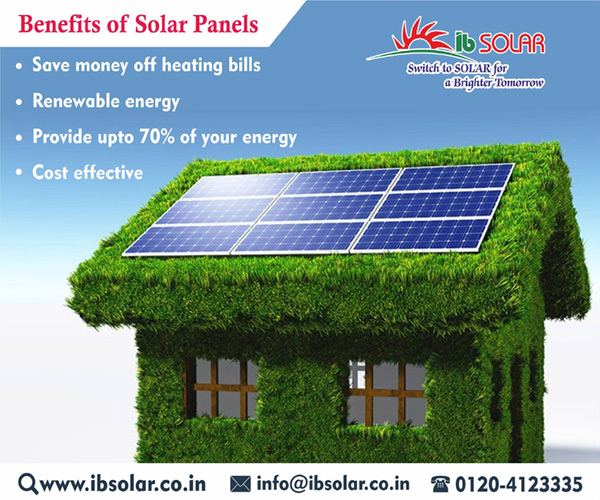How Solar Power Can Assist You Save Money and Minimize Your Carbon Footprint
The integration of solar energy into your energy portfolio presents an engaging chance for both monetary savings and ecological stewardship. By harnessing the sunlight's power, house owners can dramatically decrease their monthly utility expenditures while additionally securing versus the unpredictability of future energy prices. The change to solar contributes to a significant decline in carbon discharges, lining up individual finance with wider eco-friendly objectives. As different government motivations appear, the concern develops: how can one effectively browse the preliminary investments and ongoing advantages of solar innovation to take full advantage of both financial and ecological gains?
Recognizing Solar Power Financial Savings
While the transition to solar power often includes a preliminary investment, understanding solar energy financial savings is essential for house owners and organizations alike. Solar energy systems can dramatically decrease electrical energy costs by utilizing the sun's energy, equating right into significant lasting financial benefits. By producing their very own electricity, customers minimize reliance on grid power, which goes through fluctuating prices. These cost savings can collect gradually, often resulting in a fast return on investment.
Moreover, solar power systems might get various financial incentives, consisting of tax obligation credits and discounts, additionally improving their cost-effectiveness. The accessibility of net metering permits users to offer excess power back to the grid, producing an extra revenue stream. These variables add to the overall cost savings related to solar energy.

In enhancement to guide monetary financial savings, solar power supplies the included advantage of raising residential or commercial property value. Homes geared up with photovoltaic panels are typically a lot more appealing to purchasers, as they promise lower energy costs - Simply Solar Illinois. Understanding these elements is crucial for anyone considering solar power, as it highlights not simply the prospective monetary gains, however also the more comprehensive environmental and economic benefits of embracing sustainable energy solutions
Initial Prices vs. Long-Term Perks
When examining solar power, it is essential to consider the first expenses against the lasting benefits. The upfront financial investment for photovoltaic panels, installment, and associated equipment can be significant, commonly ranging from $15,000 to $30,000, depending upon the system size and home power requirements. This initial expense might hinder some property owners; nevertheless, it is crucial to consider the potential savings over time.
As soon as set up, solar power systems can dramatically lower or perhaps eliminate regular monthly electrical power costs, causing substantial long-term economic advantages. Studies show that house owners can conserve anywhere from $10,000 to $30,000 over the life expectancy of their solar system, commonly 25 years. Furthermore, several states provide motivations, tax obligation Bonuses credit histories, and discounts that can offset preliminary prices, making solar a lot more available.

Minimizing Your Carbon Impact
Minimizing your carbon impact is an important factor to consider in today's ecologically conscious society, and taking on solar power is just one of the most efficient strategies to attain this goal. Solar power is a tidy, renewable energy that considerably decreases dependence on nonrenewable fuel sources, which are major factors to greenhouse gas exhausts.

Furthermore, the prevalent fostering of solar modern technology urges the development of green work and sustains technologies in energy storage space and efficiency. The even more individuals and companies purchase solar power, the better the collective decrease in carbon emissions, promoting a cleaner ambience for future generations.
Government Motivations and Rebates
Embracing solar energy great site not only profits the environment yet can likewise bring about significant economic savings, particularly with the availability of government motivations and rebates. Different government, state, and local programs are created to urge property owners and organizations to buy solar power systems, making the shift extra budget friendly.
One of the most famous motivations is the Federal Investment Tax Credit (ITC), which enables planetary system owners to deduct a considerable percent of the installment costs from their federal taxes. This motivation has actually been pivotal in lowering the upfront expenditures connected with solar power systems. Furthermore, lots of states use their own tax credit scores, grants, and rebates that can further enhance savings.
Moreover, some regional governments offer building tax obligation exemptions for solar installations, ensuring that homeowners do not face raised real estate tax as a result of their renewable resource financial investments. Utility companies may additionally use motivations, including net metering and feed-in tolls, which permit solar energy users to offer excess power back to the grid.
Choosing the Right Solar System
Picking the proper solar system is essential for taking full advantage of energy effectiveness and monetary advantages. The choice hinges on numerous factors, consisting of energy demands, budget, and readily available area. House owners ought to start by analyzing their electricity consumption to identify the system size needed for optimum performance.
Next, take into consideration the different types of solar modern technologies offered. Simply Solar Illinois. Photovoltaic Or Pv (PV) panels are one of the most usual, transforming sunlight directly right into electrical power, while solar thermal systems focus on heating water. Each type has distinct advantages relying on individual demands
Spending plan factors to consider are additionally vital. First installation prices can vary substantially, so it is necessary to contrast quotes from numerous suppliers and explore financing alternatives. Government rewards and discounts can further decrease the economic concern, making solar systems extra easily accessible.
Final Thought
The ecological advantages of solar energy add to lasting methods vital for combating climate change. Government incentives boost the usefulness of solar modern technology adoption, encouraging a change in the direction of a cleaner, extra financially effective energy resource.